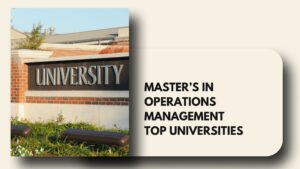- Engineering programs in Ireland offer world-class education at €13,500-26,400 (₹13.8-27L) annually with direct pathways to Europe’s booming tech and infrastructure sectors.
- Most Irish engineering master’s programs span 12 months which combine advanced academic coursework with hands-on industry experience.
- Graduate engineers in Ireland earn €39,000-80,000 (₹40-82L) across specializations, with opportunities at global companies like Google, Apple, Microsoft, Meta, Intel, and more.
- Why Indian Students Choose Engineering in Ireland
- Top Masters in Engineering Colleges in Ireland
- Eligibility Criteria for Masters in Engineering in Ireland
- Top Job Roles, Salaries & Career Scope After Masters in Engineering in Ireland
- Cost of Living in Ireland for Indian Students
- Post-Study Work Opportunities
- Key Takeaways
- FAQs

Ireland stands at the forefront of Europe’s engineering renaissance, transforming from a traditional agricultural economy into a global innovation powerhouse. The country has become home to over 200 multinational corporations, including tech giants like Google, Apple, Microsoft, and Meta, all establishing their European headquarters here.
Ireland faces a projected shortfall of over 22,300 engineers over the next decade, highlighting a significant gap in the engineering workforce.
Why Indian Students Choose Engineering in Ireland
Ireland’s engineering education blends traditional principles with modern technologies like artificial intelligence, renewable energy and biotechnology. The country invests heavily in research and works closely with industries to give students exposure to the latest innovations.
Key advantages of studying in Ireland:
- Dublin and Cork are hubs for leading engineering firms and innovative startups that offer unmatched networking and high-impact internship opportunities.
- Irish universities invest heavily in engineering research, with access to state-of-the-art laboratories, cleanrooms, and specialized equipment.
- Many engineering roles are on Ireland’s Critical Skills Occupations List due to strong demand projected in the coming years.
- Strong industry partnerships with global leaders like Intel, Amazon Web Services, Boston Scientific, and Medtronic, give students direct exposure to real-world projects.
- The Third Level Graduate Scheme grants up to 2 years of post-study work authorization allowing graduates to gain valuable professional experience in Ireland.
Top Masters in Engineering Colleges in Ireland
Ireland’s engineering education landscape offers students access to world-renowned institutions that combine academic excellence with practical industry experience.
Irish engineering programs typically span 12 months, with curriculum balancing theoretical foundations with hands-on laboratory work, and professional development components.
| QS WORLD UNIVERSITY RANK 2026 | UNIVERSITY | TOP ENGINEERING PROGRAMS | ANNUAL TUITION (EUR/INR) |
|---|---|---|---|
| 75 | Trinity College Dublin | MSc in Engineering - Civil, Structural & Environmental Engineering MSc in Biomedical Engineering MSc in Sustainable Engineering | €22,130 (₹22.7L) |
| 118 | University College Dublin (UCD) | ME/MEngSc Electronic and Computer Engineering MEngSc Engineering Management MSc Energy Systems Engineering | €25,600 - €26,400 (₹26.2-27L) |
| 246 | University College Cork (UCC) | MEngSc `Electrical and Electronic Engineering MSc Energy Engineering MSc Chemical Engineering | €22,130 (₹22.7L) |
| 284 | University of Galway | MSc Biomedical Engineering MSc Civil Engineering MSc Mechanical Engineering | €17,000 - €25,000 (₹17.4-25.6L) |
| 401-450 | University of Limerick | MSc Mechanical Engineering MSc Aeronautical Engineering MSc Construction Management and Engineering | €14,500 - €17,000 (₹14.8-17.4L) |
| 401-450 | Dublin City University (DCU) | MSc Electronic and Computer Engineering MSc Biomedical Engineering MSc Mechanical and Manufacturing Engineering | €15,000 - €17,000 (₹15.3-17.4L) |
| 501-550 | Maynooth University | MSc Electronic Engineering MSc Software Engineering MSc Computer Science (Engineering Track | €15,000 (₹15.3L) |
| Unranked | Technological University Dublin (TU Dublin) | MSc Civil Engineering (Sustainable Infrastructure) MSc Mechanical Engineering MSc Electrical Engineering Systems | €13,500 (₹13.8L) |
| Unranked | Munster Technological University (MTU) | MSc Engineering Management MSc Civil Engineering MSc Electronic Engineering | €13,500 (₹13.8L) |
| Unranked | South East Technological University (SETU) | MSc Engineering (Various Specializations) MSc Mechanical Engineering | €13,500 (₹13.8L) |
Eligibility Criteria for Masters in Engineering in Ireland
Irish universities seek students with strong technical skills, academic excellence and a genuine passion for engineering. Admissions are competitive to select candidates who can contribute to research and succeed as future professionals.
Core Academic Requirements
- Honours bachelor’s degree (minimum 2.2) in Engineering, Computer Science, Mathematics, Physics, or closely related STEM field
- Minimum 60% marks or 6.0/10 CGPA and (65% or 6.5/10 CGPA for top universities like Trinity, UCD, UCC)
- Strong foundation in mathematics, physics, and relevant engineering principles specific to chosen specialization
- GRE is generally not required for engineering programs in Ireland.
Assess your academic eligibility effortlessly using our precise CGPA Calculator, helping you target the right university with confidence.
English Language Proficiency Requirements (may vary by university)
- IELTS Academic: 6.5 overall (minimum 6.0 in each band)
- TOEFL iBT: 90+ (internet-based test)
- PTE Academic: 63+
- Duolingo English Test: 115+
For IELTS preparation, check out:
Our FREE IELTS Bootcamp course
- Mock Tests (Section-Wise and Full Exam)
- Real-Time Feedback on Answers
- Created by Certified IELTS Instructor
Top Job Roles, Salaries & Career Scope After Masters in Engineering in Ireland
Ireland’s engineering job market covers traditional sectors like manufacturing and construction as well as emerging fields such as renewable energy and biotechnology. Global tech giants and multinationals offer opportunities in software development, advanced manufacturing and specialized engineering roles.
Engineering Salary Expectations by Specialization
| Job Role | Average Salary Range (EUR/INR) |
|---|---|
| Software Engineer | €50,000-70,000 (₹51.2-71.8L) |
| Mechanical Engineer | €39,000-66,000 (₹40-67.7L) |
| Civil Engineer | €45,000-70,000 (₹46.1-71.8L) |
| DevOps Engineer | €65,000-80,000 (₹66.6-82L) |
| Data Engineer | €60,000-80,000 (₹61.5-82L) |
| Electrical Engineer | €50,000-65,000 (₹51.2-66.6L) |
Industry-Specific Opportunities:
Technology Sector: Ireland is a leading tech hub attracting Google, Meta, Apple, Microsoft, Amazon, and Salesforce, offering excellent career growth and hands-on experience.
Pharmaceutical & Medical Devices: Over 77,500 employed across 213 factories; top 10 global pharma companies operate here, with Pfizer employing 5,000, creating roles in bioprocess engineering, regulatory affairs, and advanced manufacturing.
Renewable Energy: Ireland targets net-zero emissions by 2050 with a 51% reduction by 2030, expanding wind, solar, and energy storage projects for engineering professionals.
Financial Technology: Dublin’s fintech sector drives demand for engineers in blockchain, digital payments, cybersecurity, and compliance, benefiting from EU membership and an English-speaking environment.
Cost of Living in Ireland for Indian Students
Living costs in Ireland vary between major cities and smaller university towns, with Dublin being the most expensive but offering the most career opportunities. Students should budget carefully and consider all expenses when planning their financial requirements.
Monthly Expenses by Category and City
| Category | Dublin | Cork/Galway | Other Cities |
|---|---|---|---|
| Accommodation | €500-700 (₹51,282-71,795) | €350-500 (₹35,996-56,565) | €300-450 (₹30,769-46,281) |
| Food | €200-300 (₹20,512-₹30,769) | €150-250 (₹15,384-25,641) | €120-200 (₹12,341-20,512) |
| Transport | €50-80 (₹5,128-8,205) | €30-50 (₹3,076-5,128) | €20-40 (₹2,051-4,102) |
| Textbooks & Materials | €30-50 (₹3,076-5,128) | €25-40 (₹2,571-4,102) | €20-35 (₹2,051-3,700) |
| Other (utilities, mobile, personal) | €150-250 (₹15,384-25,641) | €120-200 (₹12,307-20,512) | €100-150 (₹10,256-15,384) |
| Total Monthly Expenses | €930-1,380 (₹95,385-1.4 Lakh) | €675-1,040 (₹69,231-1 Lakh) | €560-875 (₹57,436-89,744) |
Post-Study Work Opportunities
Ireland offers the Third Level Graduate Scheme, allowing non-EU/EEA graduates to gain Irish work experience for 2 years, and potentially secure long-term employment.
Third Level Graduate Scheme Details
| Category | Details |
|---|---|
| Eligibility | Non-EU/EEA students with full-time degrees from recognized Irish institutions |
| Course Eligibility | Program must be on Ireland's Interim List of Eligible Programmes (ILEP) |
| Duration | Bachelor's (NFQ Level 8): 12 months Master's/Doctoral (NFQ Level 9+): 24 months |
| Application Timing | Must apply within 6 months of course completion |
| Purpose | Job search, work experience, transition to long-term work permits |
Key Takeaways
- Engineering programs in Ireland range €13,500-26,400 (₹13.8-27L) annually across top universities, delivering exceptional ROI compared to US/UK alternatives.
- Ireland faces a 22,300+ engineer shortage over the next decade, with graduates earning €39,000-80,000 (₹40-82L) across specializations.
- Ireland provides 2 years of post-study work opportunities through the Third Level Graduate Scheme for engineering master’s graduates.
- Irish engineering programs are fully English-taught, eliminating language barriers faced in Germany, France, or Netherlands while accessing European markets.
- Multiple engineering roles like Civil, Mechanical, Electrical, Environmental Engineers, and specialists in Process Automation are on Ireland’s Critical Skills Occupations List.
- Build a portfolio of hands-on projects using Ireland-relevant technologies like renewable energy systems, or biomedical devices to strengthen application.
- Embrace cultural adaptability and proactive networking from day one of your studies in Ireland.
Ready to launch your engineering career in Europe’s most dynamic innovation hub?
Our expert counselors at AdmitX have guided thousands of Indian students to top Irish universities worldwide with comprehensive support from course selection to visa approval.
We provide personalized counseling, university selection guidance, SOP review services, study abroad document templates, free IELTS bootcamp course, scholarship assistance, and visa support services specifically designed for Indian students.
Book your free study abroad counseling session today and take the first step toward your study-abroad journey!
FAQs
What is the cost of studying engineering in Ireland for Indian students?
Engineering programs in Ireland cost between €13,500-26,400 (₹13.8-27L) annually across top universities. Trinity College Dublin and UCC charge €22,130 (₹22.7L), while UCD ranges €25,600-26,400 (₹26.2-27L), and technological universities offer programs starting from €13,500 (₹13.8L).
How long are engineering master's programs in Ireland?
Irish engineering master’s programs typically span 12 months, combining theoretical foundations with hands-on laboratory work and professional development components. The curriculum balances academic coursework with practical industry experience through cutting-edge research facilities.
What are the eligibility requirements to study engineering in Ireland?
Indian students need an honours bachelor’s degree (minimum 2.2) in Engineering, Computer Science, Mathematics, or Physics with 60% marks or 6.0/10 CGPA. Top universities like Trinity, UCD, and UCC require 65% or 6.5/10 CGPA, plus IELTS 6.5 overall with 6.0 in each band.
What salaries do engineering graduates earn in Ireland?
Engineering graduates in Ireland earn €39,000-80,000 (₹40-82L) across specializations. Software Engineers earn €50,000-70,000 (₹51.2-71.8L), DevOps Engineers command €65,000-80,000 (₹66.6-82L), while Civil Engineers earn €45,000-70,000 (₹46.1-71.8L).
Which companies hire engineering graduates in Ireland?
Global technology giants like Google, Apple, Microsoft, Meta, Amazon, and Salesforce actively recruit engineering graduates in Ireland. The pharmaceutical sector includes Pfizer (employing 5,000), with over 77,500 professionals across 213 factories, plus emerging fintech and renewable energy companies.
How long can engineering graduates work in Ireland after studies?
Ireland’s Third Level Graduate Scheme provides 24 months of post-study work authorization for engineering master’s graduates. Students must apply within 6 months of course completion to gain valuable professional experience and transition to long-term work permits.
Are engineering roles in high demand in Ireland?
Ireland faces a projected shortage of over 22,300 engineers over the next decade, creating exceptional career opportunities. Many engineering roles appear on Ireland’s Critical Skills Occupations List, ensuring streamlined visa processes and strong job market demand.
What is the cost of living for engineering students in Ireland?
Monthly living costs range €930-1,380 (₹95,385-1.4L) in Dublin, €675-1,040 (₹69,231-1L) in Cork/Galway, and €560-875 (₹57,436-89,744) in other cities. Accommodation represents the largest expense, followed by food and transportation costs.
Which universities offer the best masters in engineering programs in Ireland?
Top-ranked Irish universities for engineering include Trinity College Dublin (75th globally), University College Dublin (118th), and University College Cork (246th) in QS World University Rankings 2026. These institutions offer specialized programs in biomedical, civil, electronic, and sustainable engineering.
What industries offer the best opportunities for engineering graduates in IrelandZ
Ireland’s technology sector leads with companies like Google, Meta, and Microsoft offering excellent growth prospects. The pharmaceutical industry employs 77,500 across 213 factories, while renewable energy projects expand toward Ireland’s 51% emissions reduction target by 2030, creating diverse engineering opportunities.















